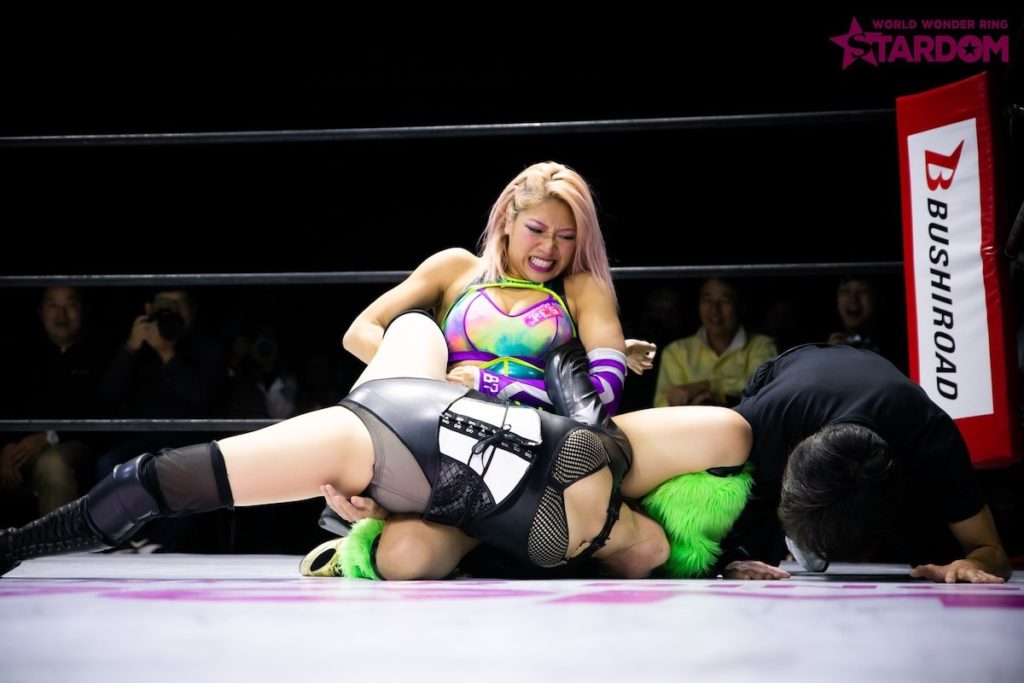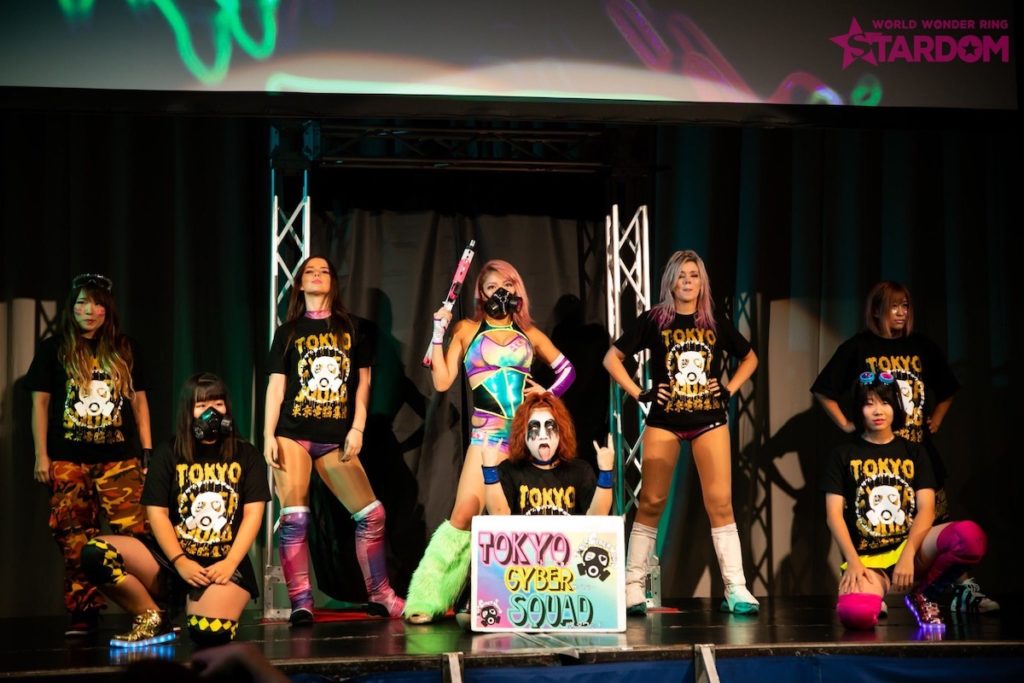
Hana Kimura died at age 22. A victim of cyberbullying.
The news broke my heart. Hana was one of my favorite pro wrestlers, even though I didn’t know her until she became a housemate on the popular Japanese reality TV show on Netflix, “Terrace House”. Hana is half-Japanese, half-Indonesian, and a second-generation pro wrestler, being the daughter of retired pro wrestler and mixed martial arts fighter Kyoko Kimura. Later I would find out that her Indonesian dad left before Hana was a year old, and that his identity isn’t publicly known.
Loving person

From the moment she appeared, Hana became my favorite housemate this season. In fact, my favorite “Terrace House” cast member of all time. Because of her, I started watching her wrestling promotion, World Wonder Ring Stardom, which is usually just referred to as Stardom.
I’ve been a pro wrestling fan since I was a kid and love Japanese pro wrestling, or puroresu. But I hadn’t been been watching the latest generation of Joshi (Japanese women’s wrestling) wrestlers. Hana changed that. She was a charismatic, hardworking, and talented pro wrestler. And a joyful, kind, and loving person.
Hana died at age 22. A victim of cyberbullying.
Cyberbullying kills

What is cyberbullying? Here’s how Unicef defines it:
“Cyberbullying is bullying with the use of digital technologies. It can take place on social media, messaging platforms, gaming platforms and mobile phones. It is repeated behaviour, aimed at scaring, angering or shaming those who are targeted.”
While a lot of the time the victims and perpetrators of cyberbullying are children or teens, toxic online culture has become so prevalent that anyone can be a target. Particularly famous people, who receive a lot of online abuse.
Hana’s fellow “Terrace House” cast members have condemned the cyberbullying that led to her death. Emika Mizukoshi posted photos of Hana on her Instagram together with a long, heartbreaking message that said in part:
“When I left Terrace House, I was also hurt by slander… lots of people said ‘Die’ and ‘Go away’, or ‘You’re on TV so it’s to be expected’ and ‘Don’t go on TV if you can’t handle it’. But even people who work in the limelight are human. We have emotions. Words really become weapons. The problem isn’t that you’re mentally weak or you can’t hack it or you’re out there so you you should take it. We have to dispel this trend of thinking it’s okay to say anything you like to so-called famous people.”
Online disinhibition effect

Why has online culture become so toxic? Why do people turn into cyberbullies and hurl online abuse at complete strangers?
According to John Suler in his online article that appeared in “The Psychology of Cyberspace”, this kind of behavior might be the result of the online disinhibition effect.
“It’s well known that people say and do things in cyberspace that they wouldn’t ordinarily say or do in the face-to-face world. They loosen up, feel more uninhibited, express themselves more openly. Researchers call this the ‘disinhibition effect.’ It’s a double-edged sword. Sometimes people share very personal things about themselves. They reveal secret emotions, fears, wishes. Or they show unusual acts of kindness and generosity. We may call this benign disinhibition.
“On the other hand, the disinhibition effect may not be so benign. Out spills rude language and harsh criticisms, anger, hatred, even threats. Or people explore the dark underworld of the internet, places of pornography and violence, places they would never visit in the real world. We might call this toxic disinhibition.”
Frustration and intolerance

Here’s what Makoto Watanabe, a professor of media and communications at Hokkaido Bunkyo University, had to say about the online users who hounded Hana.
“We often learn that the sort of people who go out of their way to do this to another person are frustrated with their own lives, they feel excluded from society and are jealous of other people’s achievements and they are just looking for an opportunity to hurt someone else,” he said.
“They often choose someone who is famous, successful and popular – all the things that they do not have themselves – and social media makes it easy to single them out and attack them while at the same time remaining anonymous.”
“Watanabe said there had been a recent ‘trend of intolerance’ towards people who are in some way different or stand out in the crowd, pointing out that Kimura was a successful female wrestler with dyed pink hair – not attributes that would necessarily resonate with conservative Japanese.”
In fact, reports indicate that even before joining “Terrace House”, Hana was the target of online haters because she is half-Indonesian.
Ending cyberbullying

Hana’s death has reverberated not just throughout the pro wrestling community, but also around the world. In her native Japan, the ruling and opposition parties are now working together on regulations against cyberbullying.
Meanwhile, Japanese broadcaster Fuji Television has announced the cancellation of this season’s remaining episodes of “Terrace House”.
Here’s their statement, translated into English via Google Translate:
“We would like to express our sincere condolences for the death of Hana Kimura, who appeared on the program. We also deeply mourn the bereaved families.
“Regarding ‘TERRACE HOUSE TOKYO 2019-2020’, we have decided to cancel the production.
“We take this issue very seriously and would like to continue to earnestly respond to it.”
I was a fan of “Terrace House”, but as I told my wife Ellen when Hana died, I will never watch the show again. While the show has a lot of merits, even in its previous seasons it has played a role in cyberbullying. As this article pointed out, “Terrace House” is just as toxic as other reality TV shows. I think it’s better to cancel the whole show altogether.
I will leave you with this Stardom interview with Hana published on Jan. 4, 2020, which has English subtitles. Hana talked about her childhood and how she didn’t want to become a pro wrestler like her mom.
And here’s Hana’s excellent match with Hazuki, who is almost exactly the same age as her and who retired on December 24, 2019.
Rest in peace, Hana Kimura. Thanks for everything.
Postscript: My dad’s death
While grieving over the weekend, I vowed that in today’s column piece I would talk about Hana Kimura’s death and the need to end cyberbullying.
I was just going to write about Hana’s death, but 2020 had other plans. Yesterday, May 27, my dad Melencio Avila Alarilla passed away at the age of 70. Please pray for his eternal repose. Thanks.
I really don’t know what to say. It feels unreal, and it just breaks my heart. But I don’t know what to say.
Rest in peace, Dad. I love you. I’m sorry. Thanks for everything.

Pingback:Matane: See you again, Hana Kimura - Joey Alarilla Online